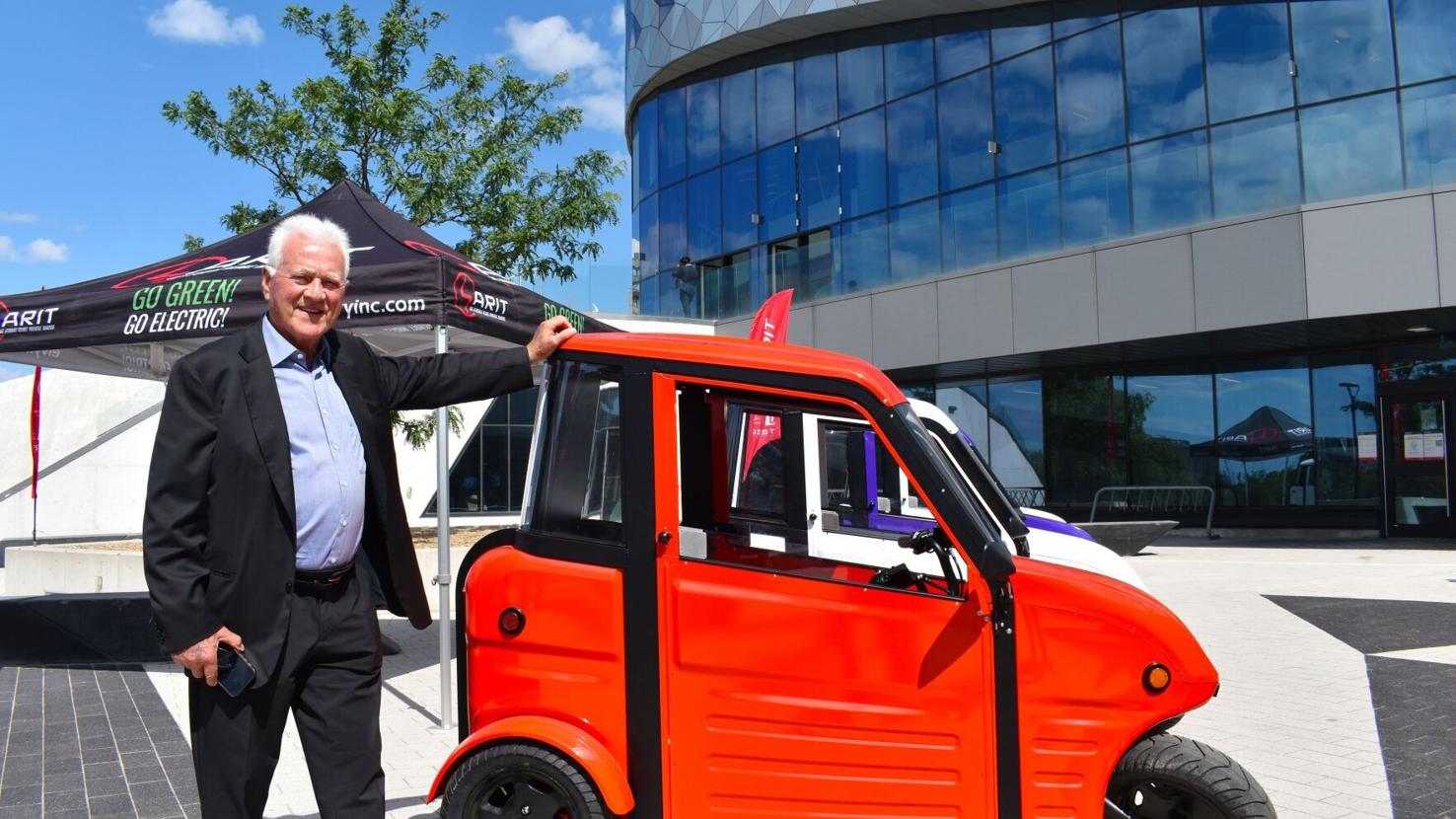Frank Stronach partners with York University to help build SARIT electric car

SARIT factory on Aurora Road in Stouffville scheduled to open later this year
Frank Stronach’s SARIT (Safe, Affordable, Reliable, Innovative Transit) vehicle is getting closer to reality. The factory located in the outskirts of Whitchurch-Stouffville on Aurora Road just east of Highway 404 is set to open later this year with vehicles becoming available not too long afterwards.
While the site on the 2159 Aurora Rd. property is located within the settlement area of the Vandorf community and was designated as a potential residential area, Stronach helped alleviate some local residents’ concerns by conveying adjacent land to enlarge the properties. Daniel Lajeunesse, vice president of Micro-Mobility and Commercialization, said it looks like they will move into the factory in August with mass public availability not likely until early next year.
Stronach and SARIT announced a partnership with York University in June along with a $100,000 donation where students and faculty would do research for the SARIT. The funds are part of wider partnership between Stronach and the university, which will support research funding opportunities in sustainable urban agricultural, and the continued testing, development and improvement of the SARIT electric vehicle prototypes on an ongoing basis in York’s living lab.
“It’s a win for the students, a win for the university and a win for us,” Stronach said of the partnership. Lajeunesse said SARIT needed a test environment and York University seemed like an ideal place.
He said 20 or so vehicles will be provided to the university for research.
“We were looking for a sustainability project on campus, and we already had a bunch of things going on with electric vehicles, so I thought this is a really cool idea,” said Andrew Maxwell, who is the Bergeron Chair in Technology Entrepreneurship at York’s Lassonde School of Engineering. Stronach told him he wanted to test it there and do research there.
Stronach delivered the first prototype to the Lassonde School in April, and the work began immediately.
The SARIT is a three-wheeled micromobility electric vehicle that currently has a 100-kilometre range. Looking to the future, Stronach said we are going to have to develop innovative ways of getting around.
“When I look three years down the road, gasoline prices will triple. When I look 10 years down the road, gasoline will be rationed,” he said.
The problem with larger electric vehicles, he said, is that they take too much electricity to charge and we don’t have the electricity infrastructure to support such wide scale use.
Stronach plans to retail the SARIT between $6,000 to $7,000. He said he believes the university environment is the perfect place to improve the vehicle.
“When we look back at history, change has always been brought about by students, and we need a culture change,” he said.
“Now more than ever, universities are being called upon to provide transformative leadership that bridges partners across institutions, sectors and borders to maximize our collective impact, and York is committed to bringing all of our resources to help ensure a fairer, more just, and more sustainable future for all,” Rhonda Lenton, York’s president and vice-chancellor said.
According to a town staff report, the proposed development will generate 80 jobs. The development will also incorporate a walking trail and playing field available for public and local resident use. According to town staff, it has been demonstrated that the development can be accommodated by private wells that will not negatively impact groundwater levels.
Last year, Stronach said he believes the time is now to move to smaller vehicles. He said he sees big car sales going down by 40 to 50 per cent over the next five to 10 years. There is much convenience to be had by switching to a smaller vehicle, he added.
STORY BEHIND THE STORY: Reporter Simon Martin went to see what SARIT’s partnership with York University means and when the factory will be building cars.